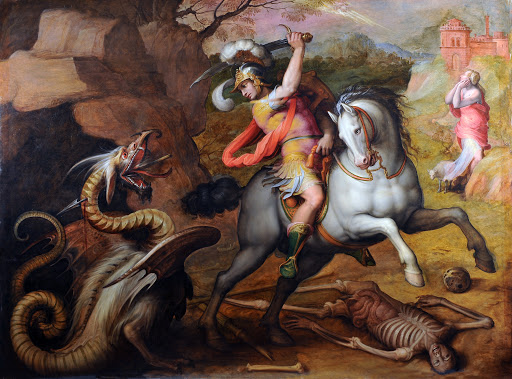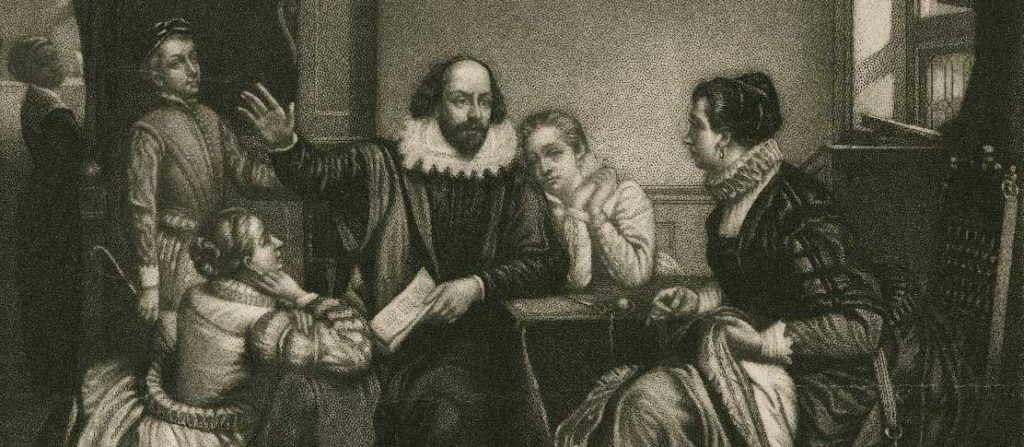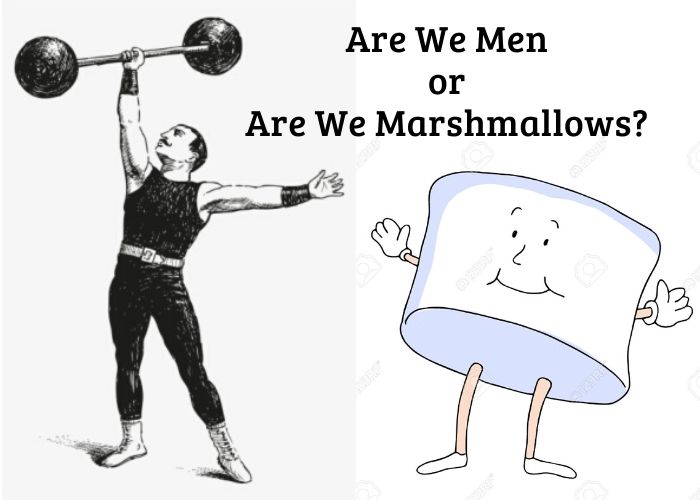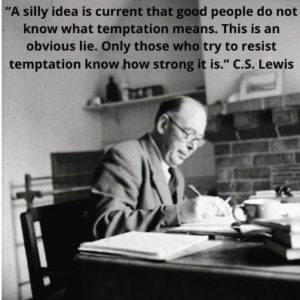
“The expense of spirit in a waste of shame
Is lust in action; and till action, lust
Is perjured, murderous, bloody, full of blame,
Savage, extreme, rude, cruel, not to trust;
Enjoy’d no sooner but despised straight;
Past reason hunted; and no sooner had,
Past reason hated, as a swallow’d bait,
On purpose laid to make the taker mad:
Mad in pursuit, and in possession so;
Had, having, and in quest to have, extreme;
A bliss in proof, and proved, a very woe;
Before, a joy proposed; behind, a dream.
All this the world well knows; yet none knows well
To shun the heaven that leads men to this hell.”
– William Shakespeare – Sonnet 129
I remember the good old days. I remember when my annoying co-worker was an adult. I remember when the smell of coffee invigorated me with a sense of shared corporate misery. I remember life outside the smudged windows of domestic prison. Back when life was normal. Before virus was a “four-letter” word.
Temptation haunted the halls of my heart long before the government told me to “shelter in place”, but never has it felt so virulent. I’m a girl with baking infatuation and too much nervous energy to burn. So, I stand at the kitchen sink with visions of snickerdoodles running through my head, an itch I can’t scratch, and one big question on my mind, “to bake or not to bake?” Yes, that really is the question.
Never underestimate the depraved nature of the human heart. Evil desires drive men to madness. And while cookie-canoodling may not constitute as one of the greater evils in human history, it does illustrate how pernicious old habits can be. Social media has flared my predilection to propagate cookies as many people I know are experiencing a new phenomenon; quarantine stress baking. They manifest their behavior via savory photographs and then crack jokes about not fitting into their clothes when they are cleared to leave the house. Ha. Ha. Ha. It’s so funny, I forgot to laugh.
Suddenly I’m daydreaming about my favorite peanut butter cookies and how chewy they are. The combination of crisp and chewy combine in such a way that my legs start to feel gooey and my salivary glands activate. So, I decide to make cookies. Because my boys love cookies and I never bake them anymore. Cookies make them happy. I will be popular. They might even give me a new nickname, “Fun Cookie Mom” instead of “Cruel Vegetable Mom”. And who doesn’t want to be a fun cookie mom?
But then I come to my senses and remember that I have a serious food addiction that is basically uncontrollable when I consume sugar. No, I do not have enough will-power. Yes, I will eat them all. Sorry, Satan. I call your bluff. NO COOKIES.
But then I wake up and tomorrow is today and I’m standing at the kitchen sink again, only this time it’s Chocolate crackle cookies. What is wrong with me? What a cookie conundrum!
I can’t escape my kitchen. It’s where I work. It’s (currently) where I sit 13 hours of every day. And I am surrounded by mechanisms of torture the average man would never recognize as such: a Sunbeam mixer, white and brown sugar, a one liter bottle of Mexican vanilla, and an extra-large bag of flour. It’s only a matter of time before I am possessed by the ghost of the Cookie Monster. Friends, I am weak and afraid!
How does one fight temptation when it feels so impossible to resist? I feel like my head is in a vice and the only way to escape is to act like a turkey….and gobble!
Have you ever felt this way? Did you obsess until you acquiesced? Were you gripped by mental fabrication until you resorted to real-life proliferation? Did you visualize until you tangibly realized?
Exhausting, isn’t it? But I have good news, Dear Reader. There is hope! There is a cure! Don’t believe me? Keep reading.
John Owen examines temptation and the human heart in his great work, “Overcoming Sin and Temptation.” This is not a light read, but for anyone serious about finding success in fighting sin, it is important. He writes,
“To know that a man has such an enemy, to deal with it, to take notice of it, to consider it as an enemy indeed, and one that is to be destroyed by all means possible, is required hereunto. As I said before, the contest is vigorous and hazardous—it is about the things of eternity.”
When I read these words, I imagine myself with a sword. I am slashing and slaying dragons. I am stabbing goblins like Aragorn from The Lord of the Rings stories. I am performing a round house kick like Chuck Norris. That is how I deal with temptation. But all of this work begins with my thoughts. That is where the real battles are won and lost. But we cannot fight what we refuse to acknowledge and we cannot win a war if we refuse to fight a single battle.
Many times, we capitulate without fighting at all. We think, “I want brownies.” So, we eat a pan of brownies. Then we think, “Maybe I shouldn’t have done that” when our pants begin to pinch, but often, (as in my case, and for many years) we ignore our conscience and do it anyway. After a while, we start to believe the lie that we have no power over our impulses and choices. The habit becomes ingrained to the point of horrific addiction. And hope becomes a seeming impossibility.
Addiction leads to death
When William Shakespeare wrote Sonnet 129, I think he knew a great deal about addiction and death. The shame of being held captive hurls the addict back to the numbing arms he or she is enthralled with, thus making it difficult to break free. He said “none knows well to shun the heaven that leads men to this hell.” But I would like to suggest that breaking free from addiction and thriving in spite of temptation is possible.
Life after Death
There is nothing more impossible than life sprouting from death. Resurrection is by nature a miracle. Maybe that is why I love spring. Every time a flower grows out of a seemingly dead bulb or from the branch of a presumably “dead” tree, I am filled with wonder. I look at my yard and see a lifeless, brown branch on Monday, but on Wednesday there is a golden flower. I can’t do this work. Nature manifests wonders beyond my understanding. We see the rhythm of resurrection all the time, but the mysteries surrounding it remain. How does the tree hibernate and then sprout fresh? How do the frogs not suffocate in the mud in the winter? How do they know the perfect time to emerge? How do those pesky morel mushrooms know exactly when to pop up and so befuddle the masses? Life is constantly flourishing from seemingly dead branches but we don’t notice because we forget our sense of wonder.
The human soul is no different than the tree or tulip; capable of sprouting life from death. Of course, we are only capable of this through the death and resurrection of Jesus. Paul writes this so eloquently.
“For when you were slaves of sin, you were free in regard to righteousness. But what fruit were you getting at that time from the things of which you are now ashamed? For the end of those things is death. But now that you have been set free from sin and have become slaves of God, the fruit you get leads to sanctification and its end, eternal life. For the wages of sin is death, but the free gift of God is eternal life in Christ Jesus our Lord.” – Romans 6:20-23
Temptation can feel like torture, but we can experience victory over it through the help Jesus offers by his blood shed on the cross. This resurrection power is real and available for those who cry out for it in earnest. This is my battle cry when the cookie-craving-from-hell erupts in my mind. “Jesus, Save me! Jesus, help me! Jesus, I don’t want to fall back into that pit. That pit is death and I love you more!”
Today, if you are stuck in your house or apartment (like most of the world at this point) and temptation has given way to addiction and death, cry out to Jesus. He will help you.
When the torturous thoughts of your addiction array themselves for war, pull out your weapon; the bible. Hurl words of truth at your enemy and slash, stab, and slay the dragon. You may have to do this every day, but Jesus never says “Hey, I’m too busy. Good luck with that.”
My weapon of choice lately is Psalm 18. (I am memorizing in whole but will share in part).
“This God—his way is perfect; the word of the Lord proves true; he is a shield for all those who take refuge in him. For you equipped me with strength for the battle; you made those who rise against me sink under me.” – Psalm 18:30 & 39
Go forth and conquer!






